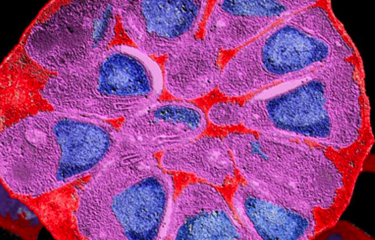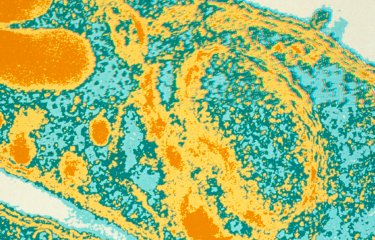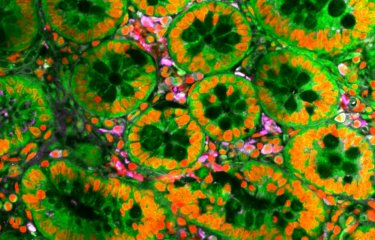Although monoclonal antibodies seem to be a promising avenue for malaria prevention, their mechanism of action remains unclear. Scientists at the Institut Pasteur recently developed a model to study and identify more effective monoclonal antibodies.
Malaria is the most deadly vector-borne disease in the world, claiming more than 600,000 lives each year. Vector-borne diseases are caused by an infectious agent (in this case mainly the parasite Plasmodium falciparum) transmitted primarily by a hematophagous arthropod (in this case a mosquito).
Previous research showed that monoclonal antibodies targeting a Plasmodium falciparum protein could prevent infection. By improving our understanding of how they work, we may be able to develop more effective antibodies that can be used to prevent malaria infection.
Developing new weapons to fight malaria
Although there is a malaria vaccine that targets the same protein as these protective monoclonal antibodies, it is only moderately effective, and new treatments are needed to curb the disease. "A Phase I trial has already assessed the safety and efficacy of two monoclonal antibodies," explains Manuela Aguirre-Botero, a PhD student in the Institut Pasteur's Malaria Infection and Immunity Unit and first author of the study. "These antibodies can prevent malaria, but because of the relatively large amounts of antibodies required to achieve protection, there is a need to identify more potent monoclonal antibodies.”
The findings of a study conducted by the Institut Pasteur in collaboration with US research centers may facilitate the selection of more effective antibodies, improving the potential of this prophylactic strategy.
Testing antibodies with a model mimicking human skin
In this study, the researchers discovered that antibody protective efficacy was mainly achieved when the parasite is moving through the skin. To better understand this process, the scientists developed a model that mimics the parasite's environment in the early stages of infection. "In this in vitro assay, we embed parasites in a porous gel-like matrix that resembles the 3D environment of the skin and incubated them with monoclonal antibodies," describes Manuela Aguirre-Botero. "This 3D matrix assay greatly enhanced antibody toxicity against the parasite and mimicked the protective role of the skin."
A promising strategy to identify potent prophylactic antibodies
"This novel in vitro assay can thus measure the neutralizing effect of antibodies, which strongly correlates with their protective activity in vivo." continues the scientist. "Now, we can test large panels of new monoclonal antibodies in vitro and select the most potent ones to test them in vivo."
Monoclonal antibodies, already used to treat autoimmune diseases and some cancers, could therefore represent a key tool in the fight against malaria.
This study comes under the Emerging Infectious Diseases priority scientific area in the Institut Pasteur's 2019-2023 Strategic Plan.
Source :
Cytotoxicity of human antibodies targeting the circumsporozoite protein is amplified by 3D substrate and correlates with protection, Cell Reports, 25 July 2023
DOI: https://doi.org/10.1016/j.celrep.2023.112681





